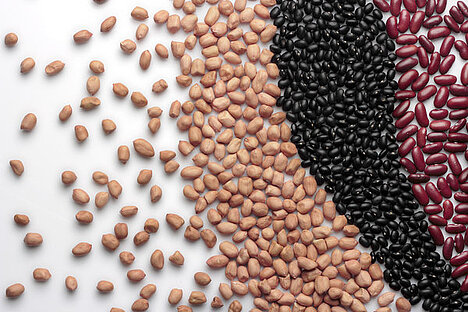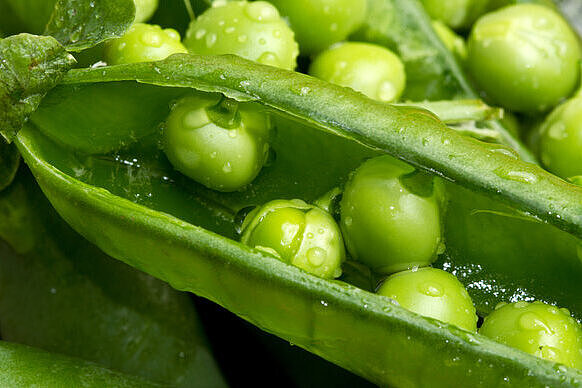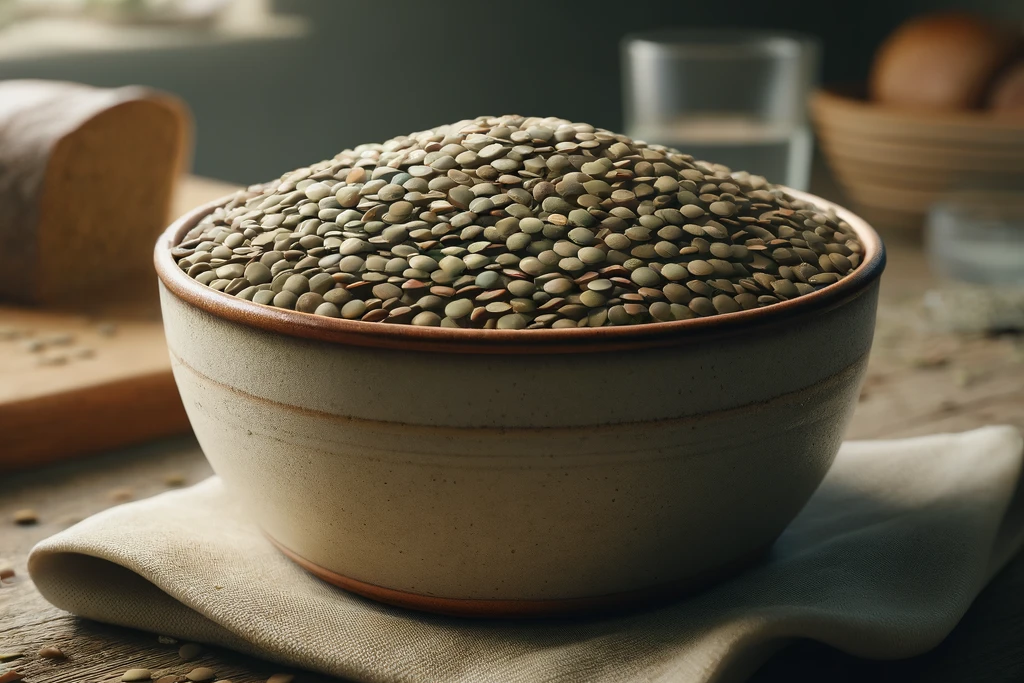Bean fibers

What is bean fiber?
Bean fibers are indigestible carbohydrates obtained from the shell of beans. They belong to the so-called crude fibers or dietary fibers, which are mainly found in plant foods. Depending on their ability to be converted by intestinal bacteria, crude fibers can be divided into poorly and easily fermentable fibers.
Poorly fermentable fibers such as cellulose or lignin cannot be digested and therefore stimulate intestinal activity. They bind a lot of water and thus increase the volume in the intestine. This promotes digestion and the elimination of waste products.
Easily fermentable dietary fibres such as pectin or inulin can be converted into fatty acids by bacteria in the large intestine. These have a positive effect on the intestinal environment by lowering the pH value and promoting the colonization of good bacteria.
Bean fibers contain both poorly and easily fermentable fibers and therefore have a dual effect in the dog's intestines.
What are the benefits of bean fiber for dogs?
Feeding your dog bean fiber can have several benefits:
- Better digestion: by stimulating intestinal motility and binding water, bean fiber can prevent or relieve constipation, bloating and other digestive problems. They also ensure that the food stays in the stomach for longer and thus provide a longer-lasting feeling of satiety.
- Healthy intestinal flora: By converting into fatty acids, bean fibers contribute to an optimal intestinal environment that promotes the growth of beneficial bacteria and displaces harmful germs. This strengthens the immune system and protects against infections.
- Support for other organs By helping to detoxify the intestines, bean fiber also relieves the strain on your dog's liver and kidneys. This prevents diseases and dysfunctions of these organs.
- Weight control: Due to their high fiber content, bean fibers reduce the energy density of the food while maintaining the same nutrient content. This means that the dog consumes fewer calories without starving or developing deficiency symptoms. This can help him to maintain his ideal weight or lose weight.
What are the disadvantages of bean fiber for dogs?
Bean fiber is not suitable for all dogs. There are some possible disadvantages or risks:
- They can cause bloating or gas if the dog is not used to it or gets too much of it. This can be uncomfortable or painful.
- They can lead to reduced nutrient absorption if they bind or dilute other ingredients in the food. This can lead to a lack of vitamins, minerals or trace elements.
- They can trigger allergic reactions if the dog cannot tolerate beans. This can manifest itself in itching, a skin rash or diarrhea, for example.
How much crude fiber should a dog get?
There is no generally valid recommendation for the optimum crude fiber content in dog food. Every dog has individual needs and reacts differently to fiber. On average, dry food should contain 2 to 4 % crude fiber and wet food 0.5 to 1 %.
If you want to give your dog bean fiber, you should keep a few points in mind:
- Introduce it slowly and gradually to avoid digestive problems.
- Make sure your dog drinks enough.
- Monitor your dog for possible side effects such as bloating or allergies.
If you notice any signs of hypersensitivity or poisoning in your dog, you should see your vet immediately. We are not a substitute for a vet, but we try to be as accurate as possible. Every dog reacts differently and we recommend you get a second opinion or consult your vet if in doubt.
Stay healthy and take good care of your four-legged friend!😊
Similar to Bean fibers
Pea fiber has several positive effects on your dog's digestion and weight. Pea fiber can Stimulate bowel movements and prevent constipation by binding water and increasing stool volume.Promote...
Lentil fiber is a protein that occurs in the cells of the eye lens. The cells of the eye lens are called lens fiber cells and are free of cell organelles once they reach a certain degree of...
Chickpea fiber is a soluble dietary fiber that is extracted from the shells of chickpeas. The shells are dried, ground and processed into a fine powder that contains around 85% fiber. Chickpea fiber...
Apple fiber is a dietary fiber obtained from juiced and dried apples. Apples are rich in vitamins, minerals and antioxidants that can provide your dog with many health benefits. Apple fiber in...



